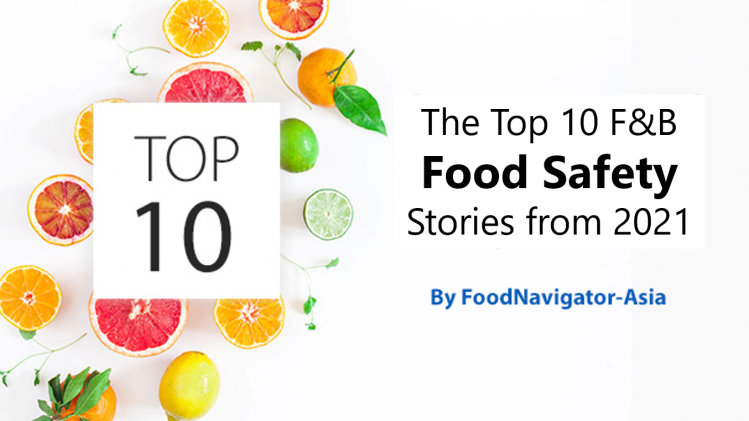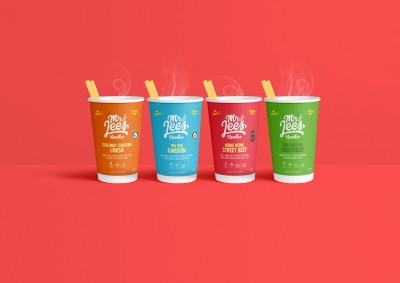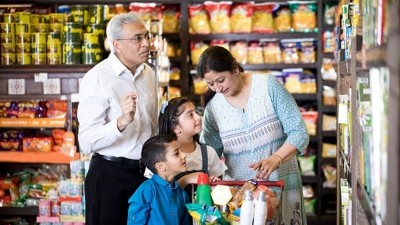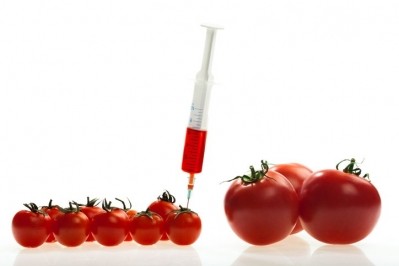Safety stories: The Top 10 APAC food and beverage industry food safety stories in 2021

Covid-19 and food transmission: Meat, dairy, nuts, fruit and veg potential carriers, but may not spread virus - Review
More studies are emerging of food products as a potential carrier for SARS-CoV-2, the coronavirus causing COVID-19, according to new review of the research, but there is no evidence of it leading to transmissions.
So far, global health authorities have reported no evidence of food or food packaging capable of transmitting COVID-19, despite, China finding the virus on mostly imported frozen foods from some 20 countries.
Researchers from Iran’s Shahid Beheshti University of Medical Science, said while SARS-CoV-2 may be present in food and even food packaging, it does not necessary mean it was viable and capable of causing infection.
In particular, laboratory studies showed that SARS-CoV-2 remained highly stable under refrigerated conditions (4°C) and freezing conditions (−10 to − 80°C) on fish, meat, poultry, and swine skin, between 14 to 21 days.
Malaysia halal rules: New QR code launched to recognise foreign certification bodies in wake of meat scandal
The Department of Islamic Development Malaysia (JAKIM) is improving the recognition of foreign halal certification bodies by adding on-pack QR codes and new training, moves that come in the wake of a high-profile meat scandal.
The fake halal meat scandal surfaced in December 2020, where meat importers had allegedly bribed custom officials for 40 years to import and sell frozen meat from non-halal certified sources. The meat including beef, kangaroo and horse meat were imported from countries including China, Ukraine, Brazil, and Argentina, and were mixed and repackaged in Malaysia and sold to consumers.
This had raised fury and concerns since these meats were typically not slaughtered according to Islamic standards, nor sourced from approved stakeholders.
The government said in response to the meat scandal that it would develop Standard Operating Procedures (SOPs) to prevent the duplication of halal certificates through the use of digitisation in halal food products.
New rules cut the mustard: Indian industry lauds government’s blended oil ban to prevent fraud and increase value
The edible oil industry in India has lauded the Food Safety and Standards Authority India (FSSAI)’s enforcement of a ban on blended mustard oils, saying it is crucial to prevent adulteration and drive premiumisation in the category.
FSSAI gazetted the banning of all blended vegetable oils containing mustard oil earlier this year, but only later issued a formal order to the food safety authorities in all states and Union Territories in India.
“Any multi-source edible vegetable oil containing mustard oil manufactured on or after June 8 2021 [is prohibited and all] multi-source edible vegetable oils shall not be sold in loose form [but] in sealed package weighing not more than 15kg,” said FSSAI CEO Arun Singhal.
‘Nuclear foods’ progress: Just 15 countries worldwide left still restricting Japanese food from districts stricken by Fukushima disaster
Only 15 countries worldwide are still implementing import restrictions on food items from Japanese districts that were stricken by the Fukushima nuclear power plant meltdown disaster in 2011 – but progress with those that remain may be hard to achieve in the short term.
Several countries in the Middle East have progressively removed all import restrictions previously imposed on foods coming in from Japanese prefectures within the vicinity of the 2011 Fukushima Daiichi nuclear plant disaster, deemed to be associated with radioactive ‘nuclear food’. The prefectures particularly hard hit by the disaster were those in closest vicinity to the powerplant, particularly Fukushima, Gunma, Ibaraki, Tochigi and Chiba.
Egypt abolished all import restrictions in November 2020, followed by Lebanon and the United Arab Emirates in December, and most recently Israel.
“The Government of Japan welcomes this decision by the Government of Israel [to] remove all regulatory measures to mandate inspections or radioactive material inspection reports for all food products from [Japan],” said the Ministry of Foreign Affairs of Japan (MOFA).
Food oil fraud: China issues warning about adulterated and blended sesame oils
The Chinese government has published new consumer guidelines focused on sesame oil, in which consumers have been warned to look out for adulterated or blended products over fears of food safety issues.
The guidelines were published by China’s State Administration for Market Regulation (SAMR), calling upon consumers to pay more attention to food labels when making sesame oil purchases.
“Sesame oil is one of the most traditional edible oils used in China which is highly popular with consumers due to its a strong fragrance – these guidelines have been issued in order to ensure that consumers are able to safely purchase this based on scientific principles,” said SAMR.
Fish fraud findings: Almost 20% of fish in Taiwan found to be mislabelled - study
About 20% of fish products in Taiwan are mislabelled, with snapper, cod and surimi products found to be the most vulnerable to fraudulent substitution.
Analysing 127 fish samples collected from supermarkets, markets and restaurants in Taiwan, researchers found that 24 samples were mislabelled, ranging between 12.5% to 26.8% depending on the fish. The gross seafood mislabel rate in Taiwan is 18.9%.
Correct product labels are essential for ensuring fair trades and preventing consumers from receiving pathogenic, allergenic, or toxic seafood.
However, labels are often subjected to fraud, one example is through substitution where the fish is sold by the name of a different, and often more expensive fish.
China food safety alerts: Warnings and directives for fermented foods, counterfeit foods and beverages issued by government
The Chinese government has issued a series of warnings and directives on the consumption of fermented foods, counterfeit foods and beverages on the back of a deadly mass food poisoning event and the rapid rise of food fraud cases in the past year.
All the warnings and directives were issued by China’s State Administration for Market Regulation (SAMR), with particular emphasis on the safety of fermented foods due to a lethal mass food poisoning case in Heilongjiang province last year where nine members of a single family died after eating homemade suantangzi (fermented corn noodles).
The cause of the mass food poisoning was determined to be high concentrations of the respiratory toxin bongkrekic acid in the noodles, produced by the bacteria Pseudomonas cocovenenans.
“Recently, there have been cases of food poisoning in several local areas involving the consumption of suantangzi (noodles made from fermented corn flour), shimifen (rice noodles) and Jew’s ear fungus, which have even led to deaths,” said the SAMR.
Sticky situation: Criticism voiced over India’s nationwide investigation into widespread honey adulteration
The Food Safety and Standards Authority India (FSSAI) has launched a nationwide investigation into a widespread local honey adulteration scandal and is mulling ‘better’ test methods – but researchers are calling for the agency to take more ‘stronger, public action’ before the situation worsens.
The honey adulteration scandal was recently triggered when Indian research organisation Centre for Science and Environment (CSE) published a report revealing how 77% of local honey samples tested were found to be adulterated with sugar syrup – with many of these samples coming from big, established honey brands such as Dabur and Patanjali.
“A total of 13 honey brands were tested, [eight being] big brands and five niche brands. Overall, 17 out of 22 samples (77%) [of local honey] were found to be adulterated,” CSE said in the original report.
Japan nuclear monitoring: Tests show radioactivity concentration decreased in most foods products within five years
Monitoring tests of Japan’s food products after the 2011 Fukushima nuclear accident showed that drinking water, milk and infant food were within the radioactivity concentration limits after five years, but some samples from the wild animal meat and agricultural categories still showed high radioactivity.
In 2012, the government set standard limits for radionuclide in foods, specifically radioactive cesium. The limits were set at 10 Bq/kg for drinking water, 50 Bq/kg for milk and infant food, and 100 Bq/kg for general foods which includes wild animal meat, fishery and agriculture.
Based on these standard limits, local governments in 17 prefectures conducted their own monitoring tests, to ensure that foods exceeding the standard limit are not distributed, recalled, and disposed.
China’s dairy focus: New national three-year strategy highlights R&D and regulatory control to boost safety and reputation
The Chinese government has announced a new three-year strategy to further develop the local dairy industry, with emphasis on strengthening R&D as well as tighter governance to quell remaining food safety concerns and boost the sector’s reputation.
The strategy, dubbed the ‘Dairy Product Quality and Safety Enhancement Action Plan’, was announced by China’s State Administration for Market Regulation (SAMR) and is the latest in the country’s many attempts to motivate local consumers to increase dairy consumption including the formulation of formal consumption guidelines for this last year.
“[Although] the overall level of dairy product quality and safety has been on the rise in recent years, this strategy has been formulated as there are still various problems plaguing the dairy industry [that need to be solved] for it to reach maximum potential,” said SAMR.















